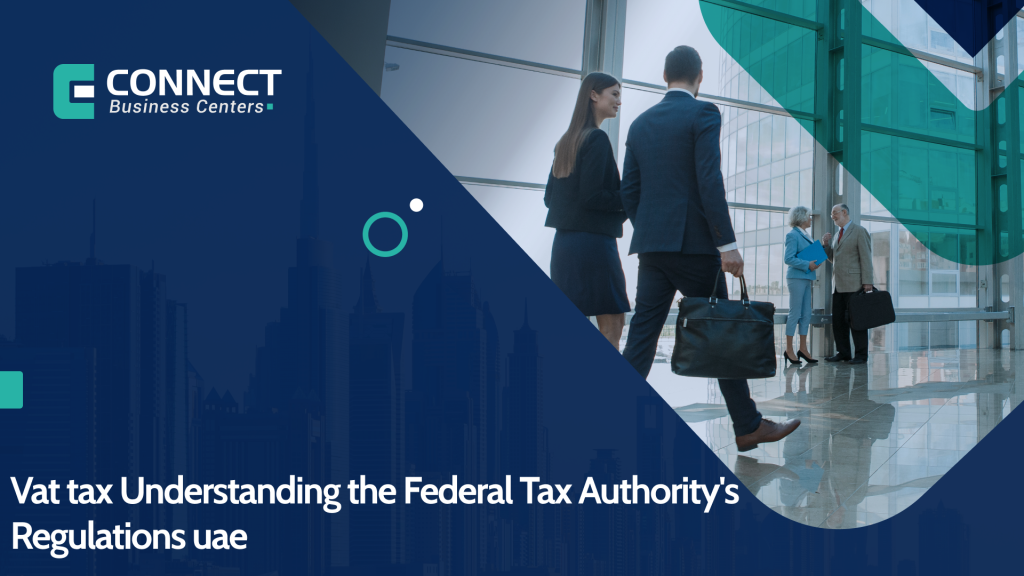Taxes play a crucial role in improving and extending the economy for the welfare of the country and its nation. Improving the system of services, the residents can easily gain the benefits with seamless operation. vat tax uae is also necessary for the government to keep offering top-notch public services to both its residents and foreigners.
If you are new to this term or not aware of the practical approaches of UAE for the tax, then give this article a read. We present the comprehensive overview on the vat tax in Dubai.
VAT Implementation in the UAE
In the United Arab Emirates, the Federal Tax Authority, or FTA, is the regulatory organization in charge of enforcing and collecting taxes. This official body established vat tax in dubai in 2018. Most goods and services are subject to this 5% tax throughout the whole manufacturing and sales process. Companies that have registered for VAT can deduct their amount they paid to suppliers from the tax they collect from customers. This guarantees openness and shifts the final cost to the customer, with companies serving as government collectors. There are various exclusions as well; for example, some exports and essentials are zero-rated (0% VAT), allowing companies to still claim input tax.
Impact of VAT on Consumers in the UAE
The UAE’s implementation of VAT has resulted in a varied reaction from customers that reflect both decline and advancement in the system. We summed up few below:
Increasing Cost of Living: The majority of products and services will now cost 5% more. This is the most noticeable immediate impact. This may be a hardship, particularly for homes with modest incomes when every dirham matters.
Consumer Behaviour Shift: Some buyers are becoming more frugal, choosing less expensive options or postponing purchases. In the long term, this may result in more competition and maybe reduced pricing.
Potential Advantages: The government uses the VAT money it collects to pay for public services like healthcare, education, and infrastructure. In the end, this can help customers by raising their standard of living in general.
Limited Effect: The 5% rate is among the lowest in the world, and several necessities are free from the VAT, which lessens the impact to customers.
Unequal Impact: Because they spend a greater percentage of their income on essentials, those with bigger families and those with lower incomes are often disproportionately affected by the VAT.
In general, VAT has made consumer purchases in the UAE more complicated. Some have had to change their purchasing habits, while others might not notice a big difference. The government’s ability to use the VAT money to enhance public services and maybe implement social safety nets for disadvantaged populations will determine the long-term effects.
Benefits of VAT for the UAE Economy
The economy of the United Arab Emirates has benefited greatly from the vat implementation in dubai. Although VAT may cost customers a little bit more, there are substantial long-term benefits for the UAE’s economy.
Government Increased Revenue
In the UAE, VAT has greatly increased government revenue. The 5% tax on a wide range of products and services decreases reliance on the unstable prices, generating a new, steady source of income. The government is now capable to make investments in infrastructure, healthcare, and education thanks to this infusion of cash.
Along with improving people’ quality of life, these upgrades also make the area more appealing to companies, which might encourage greater foreign investment and a more diverse economy. Although customers may initially see a minor price hike, the long-term advantages for the stability and future growth of the UAE’s economy are significant.
Diversification of Economy
The contribution of VAT to economic diversification is one of its main advantages for the UAE. How to do it is as follows:
Decreased Dependency on Oil: By creating a new revenue stream, VAT helps the UAE become less dependent on the volatile price of crude oil. As a result, the government’s financial base is more secure.
Investment in Non-Oil areas: The government may make investments in non-oil areas including tourism, technology, and renewable energy thanks to the VAT revenue. As a result, the economy becomes more robust and varied.
Attracting Businesses: The UAE improves its appeal as a location for international companies by making investments in infrastructure, education, and a trained labor force. Increased foreign investment and the development of jobs in non-oil sectors may result from this.
In general, VAT encourages the UAE to diversify its economy and move away from its oil dependence in order to create a more sustainable future economy.
Investment in Infrastructure
In the UAE, VAT serves as a catalyst for infrastructure growth. The government can invest the additional funds raised by the tax on public transit, bridges, and roads. This enhances people’ quality of life on a daily basis and makes the area more appealing to companies. This might encourage further investment and economic expansion.
Resources for VAT Information in the UAE
The UAE’s Value Added Tax (VAT) system can seem complex at first, but with the right resources, you can gain a thorough understanding. Here’s a breakdown of some key resources to get you started:
Primary Source:
Official Source: Federal Tax Authority (FTA) is the only authentic government body that defines all relevant regulations and guidelines in the UAE. You can fetch all the related a pool of information, including detailed guide on factors of this tax, new revised update (If any) and any query that you may want to ask.
Secondary Sources:
Government Websites: there are few other UAE government websites that you can reach out to for further information specific to their sectors. For example, the Ministry of Finance might have information on VAT and government procurement.
Tax Consultancy Firms: Many tax consultancy firms in the UAE specialize in VAT. They can provide tailored advice and support for businesses and individuals.
Industry Associations: Industry associations may offer resources and guidance on VAT specific to their sector. (e.g., Dubai Chamber of Commerce and Industry might have resources for businesses in Dubai).
Via News: get the latest upgrade on the latest VAT advancements by following news articles.
VAT for Businesses in the UAE
The vat tax for business in uae has affected personalized industries in a variety of ways. It has certain administrative costs, but there may be advantages as well. This is an explanation:
Costs and Compliance Have Increased: Companies must register, keep track of VAT, and file returns. These tasks might take a lot of time, and they may call for hiring more staff members or purchasing accounting software.
Impact on Cash Flow: Companies are required to collect VAT from clients, but they are only able to claim VAT on legitimate business expenditures. Cash flow may be momentarily impeded by this.
Pricing and Competition: Companies must choose whether to pass on the VAT expense to customers or absorb it themselves. Pricing strategy and competitiveness may be affected by this.
Possible Benefits:
A business’s capacity to adapt, size, and industry will determine how VAT affects it. VAT can result in increased productivity and a more competitive company climate. Some advantages can be:
- Input Tax Convenience: By recovering VAT paid on business purchases, companies can lower their overall tax liability.
- Justified Competition: Since most goods and services are subject to the same tax rate, the value-added tax (VAT) levels the playing field for businesses.
- Improved Government Services: Infrastructure and government services may be paid for using VAT money, which may eventually help companies.
What is the VAT rate in the UAE?
The usual Value Added Tax (VAT) rate is fixed to 5% in the United Arab Emirate. For the majority of products and services, this tax Is applicable. However, this isn’t effective on few things, such as exports from the Gulf Cooperation Council (GCC) and some necessities like healthcare and education, which are zero-rated.
How does VAT work in the UAE?
VAT is a 5% tax that is applied at every step of production and sale in the United Arab Emirates. Companies can recoup VAT they paid to suppliers, but they can also recover it from customers. Under this arrangement, companies just serve as government collectors; the ultimate customer is responsible for paying the 5% VAT. Additionally, there are zero-rated supply like exports that carry 0% VAT but let companies deduct input tax, as well as commodities that are free from VAT.
Who pays VAT in the UAE?
The final consumer bears the brunt of VAT in the United Arab Emirates. Companies that are registered for VAT charge customers a 5% tax, which they subsequently send to the government. Therefore, although companies manage the process of collection, the VAT is really paid by consumers.




